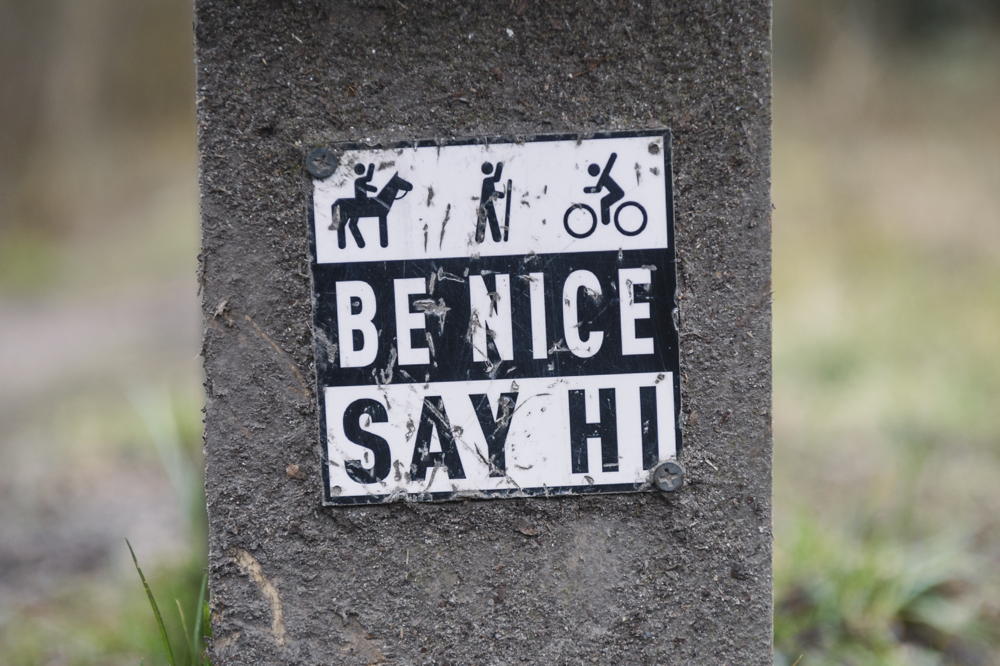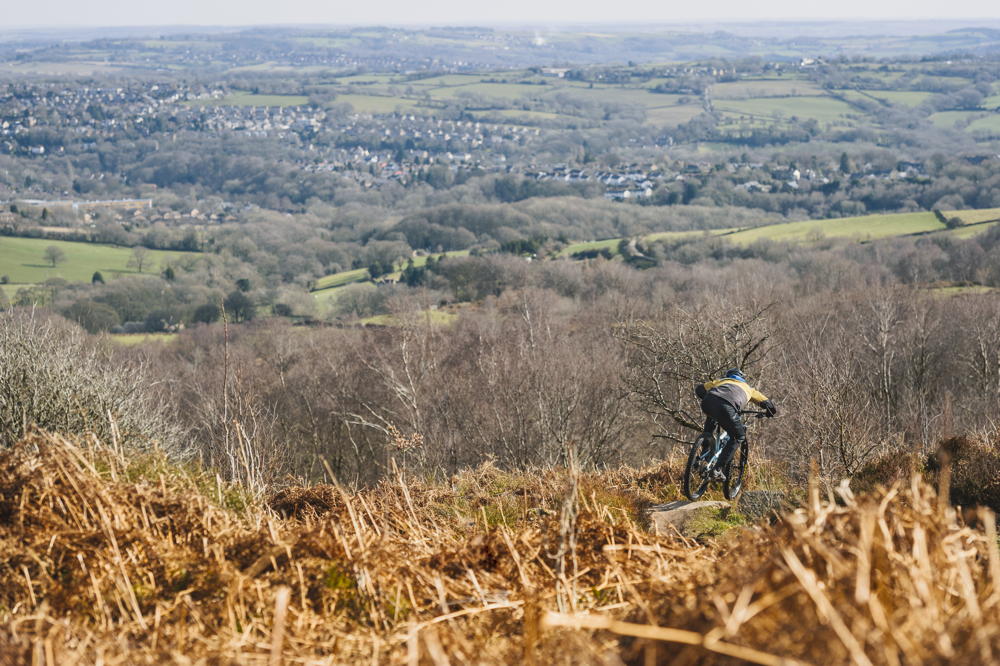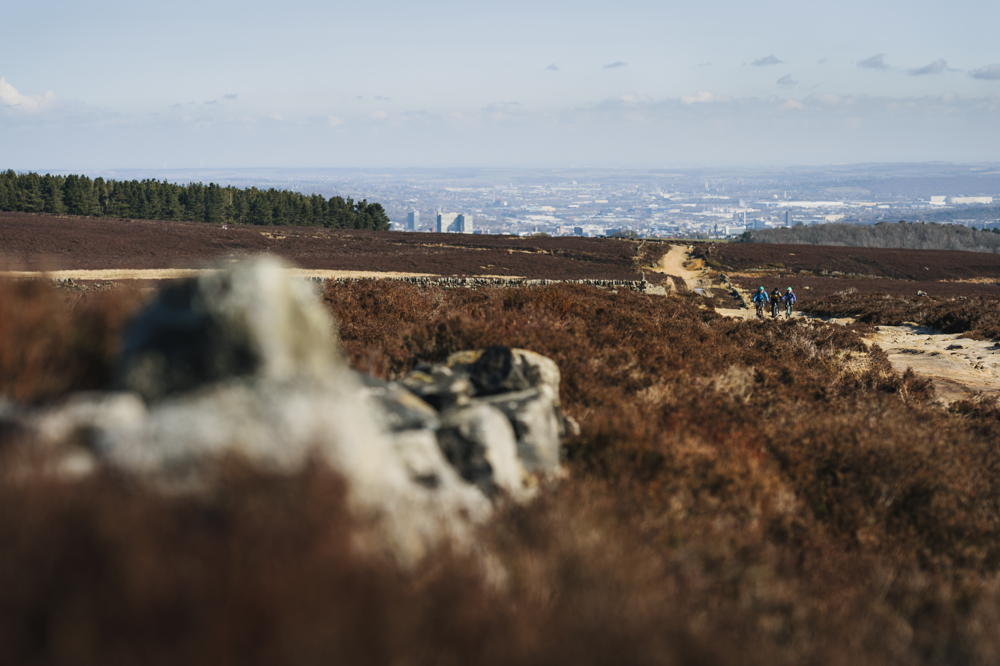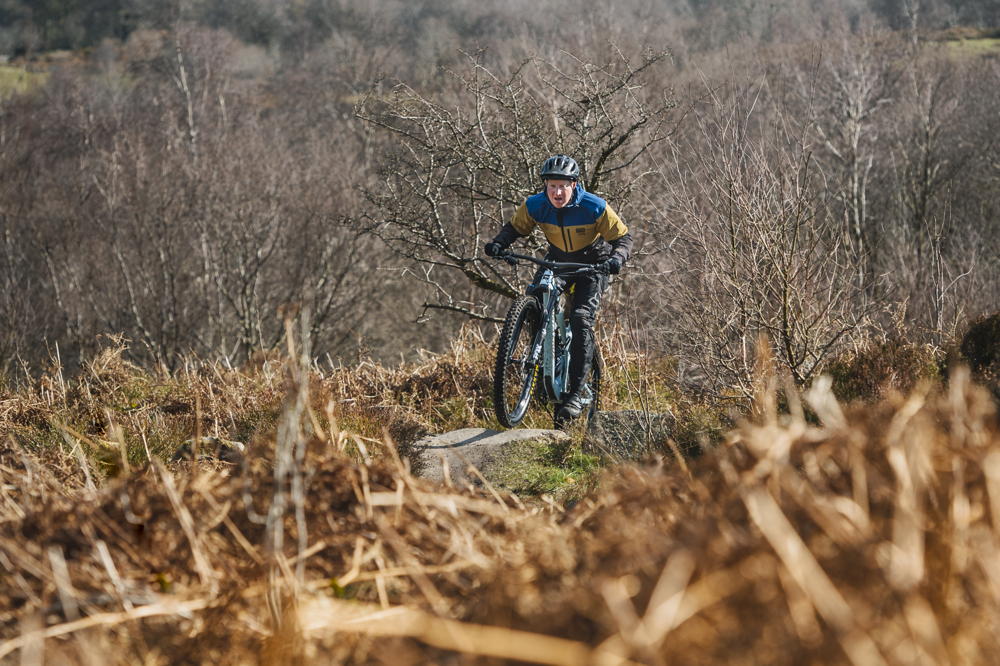Part 1 our our Trail Blazers series
The ‘Outdoor City’ has embraced mountain biking with gusto and it’s all down the work of this dedicated group of volunteers
>>> MBR Trail Bike of the Year 2020

Simon Bowns
Ride Sheffield
Mountain bikers have a reputation as anti-establishment types; individuals with a lust for gratuitous self-amusement and scant regard for rules. This isn’t completely untrue. Mountain biking does attract those with a certain mindset: thrill seekers, explorers, pain addicts, outsiders, eccentrics and recluses – you have to be wired a certain way to enjoy riding a bike off-road. Equally, this rebellious reputation has come from mountain biking being a relatively new sport, one that’s trying to work out what it really is and what it can be. Like a teenager, it’s made as many bad decisions as good, kicked against the pricks, upset the status quo and just as often sulked when things haven’t gone its way.

But as riders have gotten older, and the sport has developed, attitudes have changed. Approaches have mellowed and the teenage rebellion has been tempered with a more mature and considered approach to, not just how we are perceived, but also how we get what we want. One group that has led the way in this transformation, from a scattering of disparate outsiders to a force to be reckoned with, is Ride Sheffield.

Ride Sheffield doesn’t have an official office, but if it did it would be in the Norfolk Arms. The pub sits just outside Sheffield city limits on the edge of The Peak District, opposite one of the group’s greatest achievements – Lady Canning’s trail centre. I’m here to meet with members of the group to try and get to the bottom of how they’ve managed to seemingly do the impossible – bring together mountain bikers, work alongside ramblers and horse riders, coordinate with local government and make Sheffield one of the best cities in the UK to be a mountain biker.

Henry Norman is Ride Sheffield’s chairman and he’s the kind of person every organisation needs. He’s a do-er, one who can galvanise, organise, appease and disrupt to make things happen. Working at Sustrans – a charity that aims to make walking and cycling more accessible – he’s invested professionally and personally in making more riding available to more people. Years of working alongside the council means he has the connections, knowledge and tact to put forward the case for mountain biking – something that has arguably been lacking until recently.

Young riders are quick to berm
Henry isn’t alone, though. Ride Sheffield is lucky to have a diverse range of equally committed people within the group, as well as the support of local businesses. Sheffield’s reputation and self-billing as ‘The Outdoor City’ means you don’t have to look too hard to find people who are passionate about riding, but bringing those people together has been much more of a challenge. And, while Ride Sheffield is now a well respected organisation that has the ear of land owners, the council and other stakeholders, it’s been a long, slow and not always successful process getting to this point.

The idea for the group came about in 2009 when Henry was invited onto the Local Access Forum, mostly because he worked for Sustrans and had a desk in the council offices. He was to be the token mountain biker on the forum, as the council was convinced it could never connect with a disorganised group like mountain bikers. Off the back of this Henry set up a Facebook group, Sheffield MTB, to try and connect as many riders in the area and start to build some kind of consensus on what needed to happen to improve mountain biking in and around the city.

Henry Norman: Ride Sheffield’s chairman and chief fixer
“I thought we probably needed to do something more, so we set up a meeting in the Lescar pub. I put up a post on Facebook about it that got shared around. Bike shops shared it and if I bumped into riders out riding I’d tell them ‘we’re doing this’. It also appeared on ukbouldering.com, which around Sheffield was a forum for mountain bikers as much as anything else. We had 80 people turn up at the Lescar and we just chatted about issues and riding.”

There’s plenty of fresh air to be had above the urban sprawl
What emerged was that there wasn’t a clear consensus: “The question that kept coming up was ‘who’s going to do something about it’ and we said that’s the point of the meeting: we are.”
While most attendees probably thought they were meeting up to organise dig days and group rides, they left with the idea that campaigning and communications were going to play just as vital a part in improving their riding as spade work.

The Outdoor City’s got a charming warren of back streets to explore
“We had plans to do things, but to start with the important thing was just to be this communication point. We had a couple of early successes taking on the council, and winning, which made them take us seriously.”
A slow start
The reality of a mountain bike advocacy group is that a lot of the work isn’t glamorous and stopping the council closing or altering trails doesn’t have the same cachet or high-profile visibility as opening new ones. To those outside the group it looked like very little was happening other than a lot of talking.

Rock step and jumo: getting a natural lift at Blacka Moor
“For the first year or so we had to put up with people slagging us off, partly because we were seen as not doing anything, but if you look at most advocacy groups a lot of them get to three years then fold, because you can’t really achieve much to begin with.”
This is where people like Henry come into their own. Used to dealing with the slow and circuitous way in which local government works, he was able to persevere where others might have given up through sheer boredom and frustration.

“First person to be nice and say hi wins”
One of the first things that turned people on to the fact that there was more going on than just meetings, was what has become Peaty’s Steel City DH race in Grenoside Woods. When the Wildlife Trust bought the woods 10 years ago it mentioned it would be open to the idea of a mountain bike race being held on the land if the proceeds could help pay towards the land purchase. ‘The biggest little race’ as it’s known, was born. Each year, money from the race is now put back into maintaining the trails in Greno. Some years this is more than others, and to help to build bigger and better trails in the woods, Ride Sheffield has recently launched a crowdfunding campaign.
Crowdfunding Cannings
The other big project that truly cemented Ride Sheffield’s reputation with both riders and the council, as well as proving that the crowdfund concept worked, was Lady Cannings trail centre. The possibility of creating official trails on the plantation was originally mentioned at that first tentative meeting at Lescar. It wasn’t as simple as just marching in with trail tools and setting about clearing a few lines though. For a start, the main path through the woods had to be re-classified as a bridleway. This involved liaising with horse riders and ramblers to make sure that they were happy with the change of classification. Then there was the not so small matter of paying for the work.

Relations with horse riders are good, save for the odd dirty protest
“We realised early on that it wasn’t going to be a trail you could build by hand, and the council wanted it built to a standard. So we had to raise some money, and Cy [Turner, of Cotic Bikes] said we could try crowdfunding it. On the first day I got loads of emails, PayPal receipts, all arriving over lunchtime. All for £10, £25. That was the first I knew the press release had gone out about the crowdfunding.”

Asking people to donate money towards the trails is something Ride Sheffield hasn’t shied away from. Rad Tax is the group’s attempt to get riders and local businesses to put their hands in their pockets and help purchase tools and materials and create a war chest so that trails can be resurfaced when required, rather than relying on a specific fundraising push. Despite spending thousands on bikes and equipment, riders can be strangely reticent to spend money on trails, but the reality is that if we want to continue to have great places to ride, we need to not only help build them, but pay towards them.

Despite obstacles along the way, Norman’s pulled off a diplomatic Tour de Force
Changing attitudes is just as important as fixing trails. Mountain biking might be maturing, but it can still find itself at odds with other trail users, either through ignorance or through a lack of respect – from both parties. That slightly rebellious spirit can flare up and one bad encounter can undo a lot of good work and will. You don’t need to look too hard to find a ‘Be Nice Say Hi’ sign out on the trails around Sheffield. This is a Ride Sheffield initiative aimed to promote a bit of friendly trail user interaction. From a marketing point of view it’s genius – a simple slogan that applies to everyone, whether they are rider, walker or horse rider. It’s a reminder that, in the end, we all just want to have a good time in the outdoors, and despite how we get about, we’re all the same. It’s also a message that isn’t location specific, and other trail advocacy groups around the country have adopted the idea – like all the best slogans, its message is spreading.
Wise council
Recent heavy rain has, like across much of the UK, taken a toll on the trails in the area, but the task of returning back the trails back to a rideable state is already well underway here. The council has dropped off aggregate and a trail team has been out filling in the ruts, clearing drainage and re-routing the trail to better cope with the next inevitable deluge as well as improving the riding experience. There’s a level of trust between the group and the council now that is at the core of what Ride Sheffield is able to do. It’s not a free pass to do what it wants, but it’s an endorsement of what it has achieved and makes getting things done a whole lot easier.

Parkwood Springs: bringing flow to the city is the goal
Sheffield council deserves some recognition for its part. It’s not always been an easy relationship, but it has become a key ally in improving mountain biking in Sheffield. One project the council has seen through itself is Parkwood Springs – a small, but perfectly-formed trail centre with its own dual race track. Perched above the city next to football pitches, it’s an accessible facility that underlines that mountain biking can happily exist in urban environments and that Sheffield really takes The Outdoor City title to heart.

A Steel City sticker sums up Ride Sheffield’s ethos
It would be easy to sit back, look at Ride Sheffield’s achievements and wish something similar would happen near you, but that’s the lesson here; it can, but it’s up to you. Dreaming about more trails, more access or hosting a race is just the start. It takes someone to take the first steps to create a group, build a scene and work to make that dream happen. Henry has a few pointers on this.
“If you do some things poorly it tarnishes your reputation. It’s something we’re very aware of; our work has to be of a good standard. Everything we do – online, trail building – has to be good enough. It’s really important that you look professional and we’re as professional as we can be when we’re doing stuff. Being consistent is really important. Once you can show what you’ve done, and have examples of your work so people and funders know what you’re on about and what a mountain bike track looks like, it does really help. I think we have a good model.
Inspired by the success of Ride Sheffield and want to roll out something similar locally? There’s nothing stopping you following in their wheeltracks, but arm yourself first with Henry’s checklist for effective advocacy:
Be positive.
Be professional.
Be open and friendly with other user groups.
Get involved with the local access forum.
Get to know landowners.
Get involved in stakeholder groups.
Go to all the meetings and don’t annoy anyone in the process.
Offer to help, offer to maintain trails.
Do the work and gather the evidence.
Don’t forget to take photos so you can show what you’re doing.
To find out more about Ride Sheffield and to donate to the Grenoside Woods crowdfunder, head to: ridesheffield.org.uk
About this Trail Blazers series
One of the most exciting things about mountain biking is that it’s always changing. From the bikes we ride to how and where we ride them, things never stand still for long. And here at mbr we’re convinced things are getting better.
The Trailblazers series is our look at the people, places and events that are behind these changes; helping to define and improve riding in the UK right now. From behind-the-scenes volunteers out digging trails in their spare time; people lobbying for more access to trails; those working to get more people from all backgrounds out riding; grassroots race organisers making events happen, through to the riders who are changing how and what mountain bikers ride; we want to tell the stories and give recognition to the people who are changing mountain biking and making riding better for all of us.




